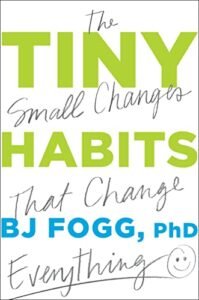|
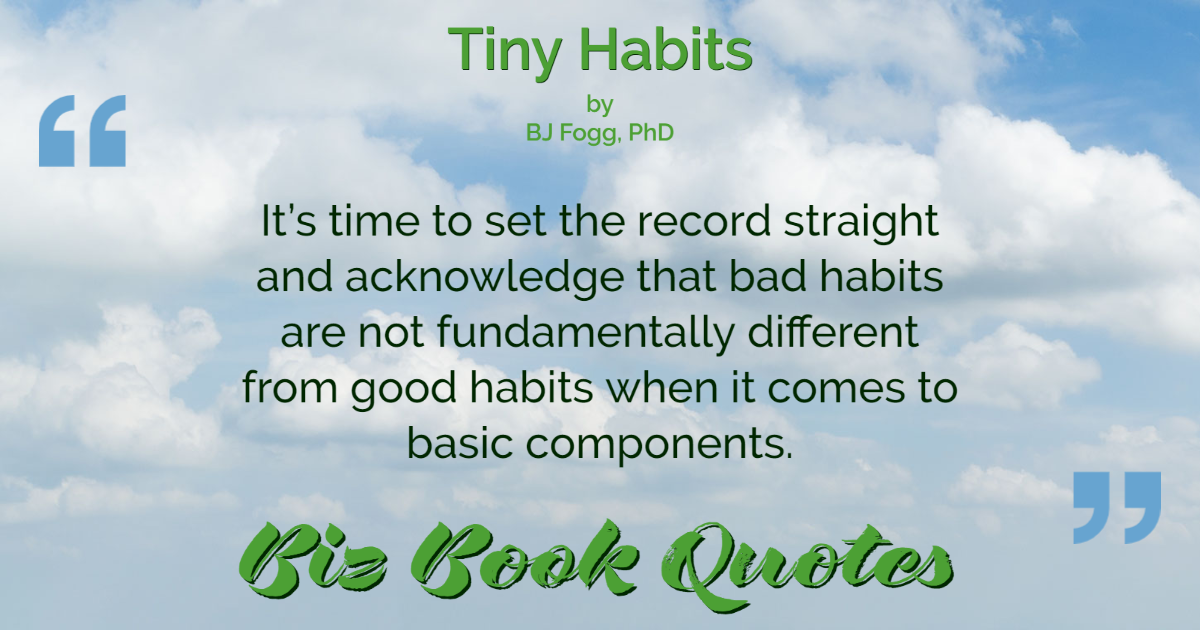
|
Tiny Habits:
It’s time to set the record straight and acknowledge that bad habits are not fundamentally different from good habits when it comes to basic components.
|
202 |
|
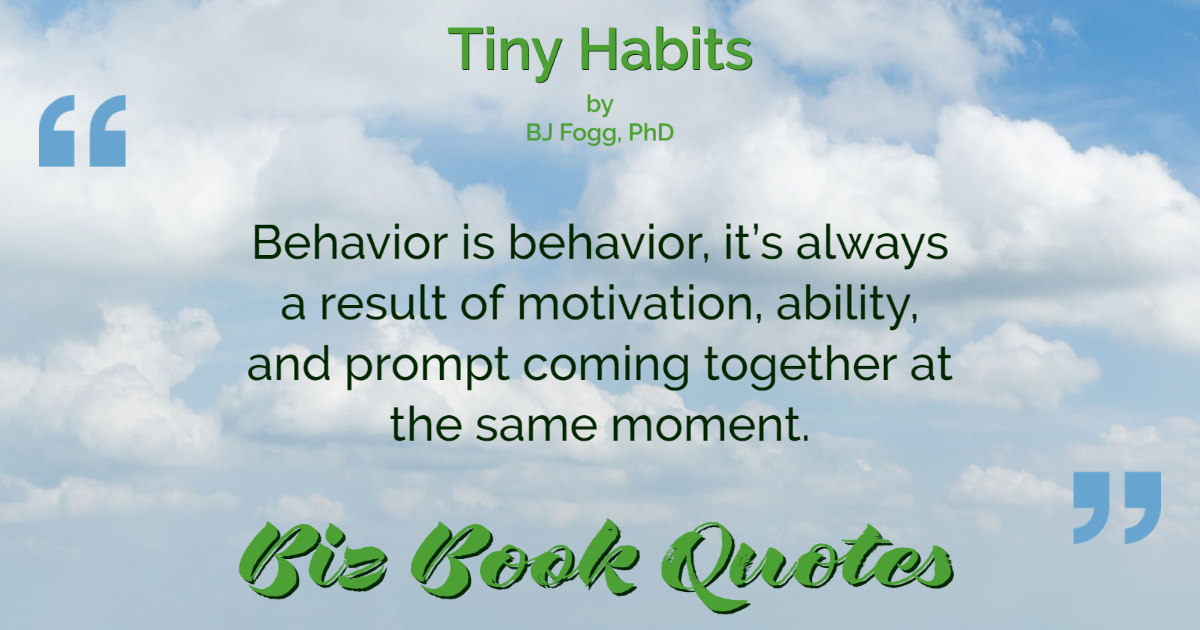
|
Tiny Habits:
Behavior is behavior, it’s always a result of motivation, ability, and prompt coming together at the same moment.
|
202 |
|
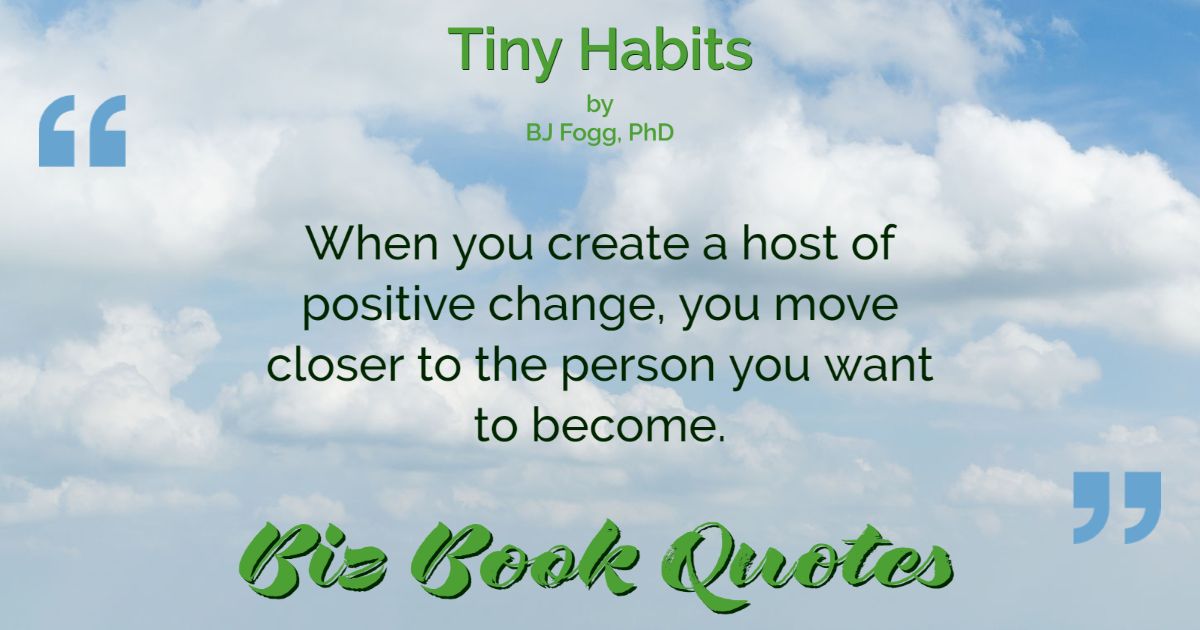
|
Tiny Habits:
When you create a host of positive change, you move closer to the person you want to become.
|
204 |
|

|
Tiny Habits:
Removing the prompt is the simplest option for stopping an unwanted habit. And the best way to remove a prompt is to redesign your environment.
|
208 |
|
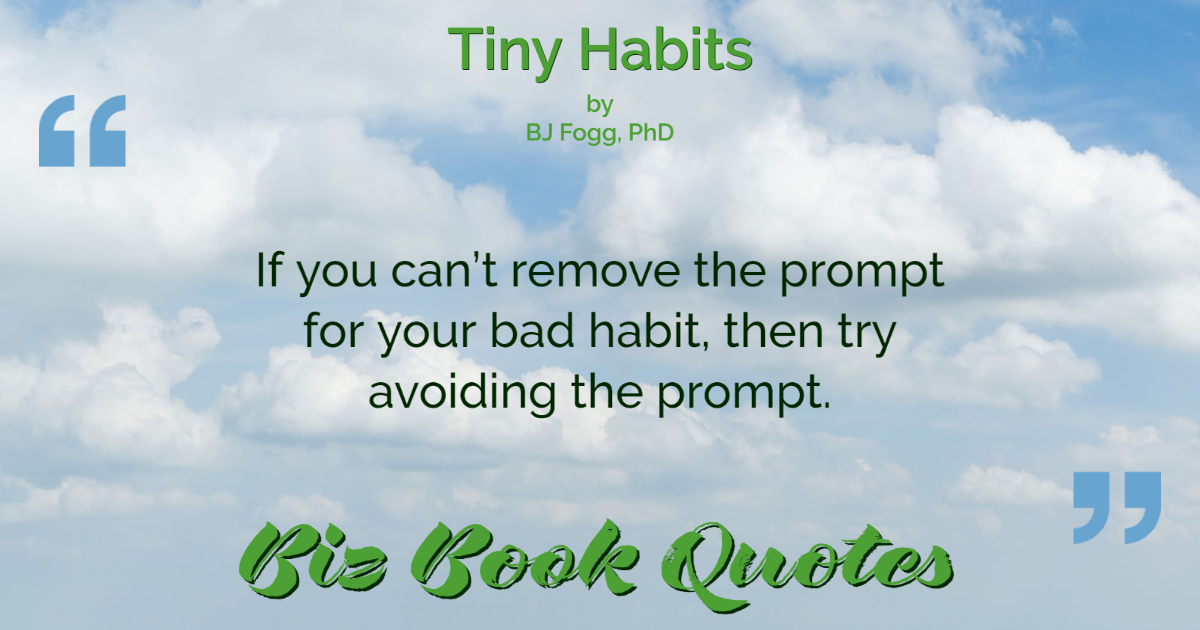
|
Tiny Habits:
If you can’t remove the prompt for your bad habit, then try avoiding the prompt.
|
209 |
|
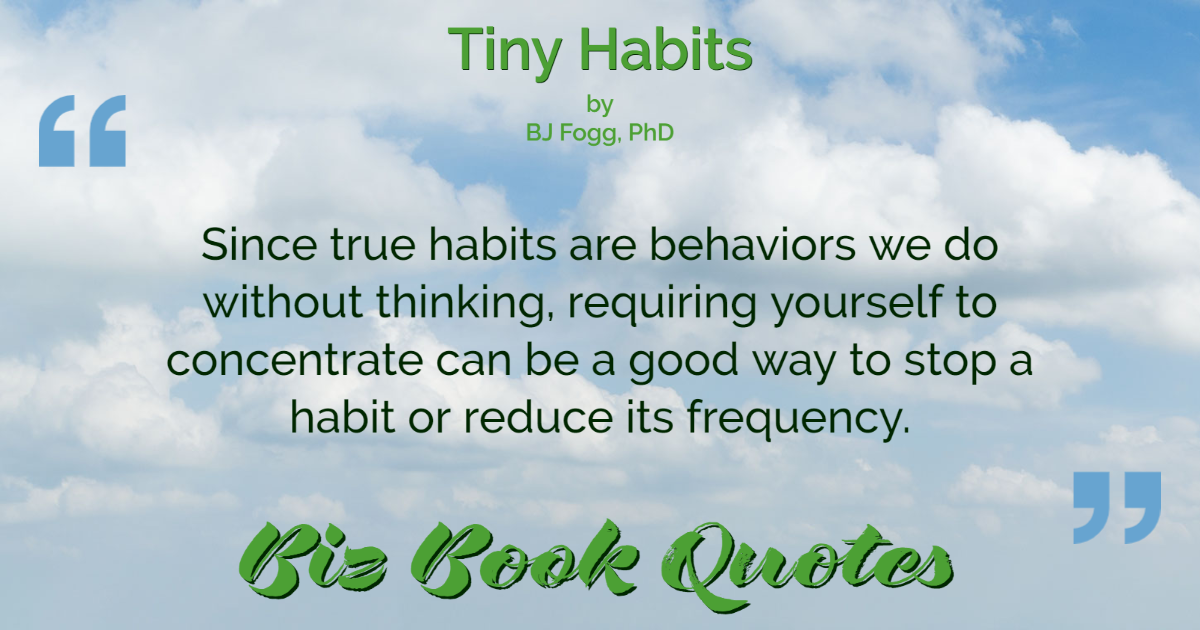
|
Tiny Habits:
Since true habits are behaviors we do without thinking, requiring yourself to concentrate can be a good way to stop a habit or reduce its frequency.
|
214 |
|
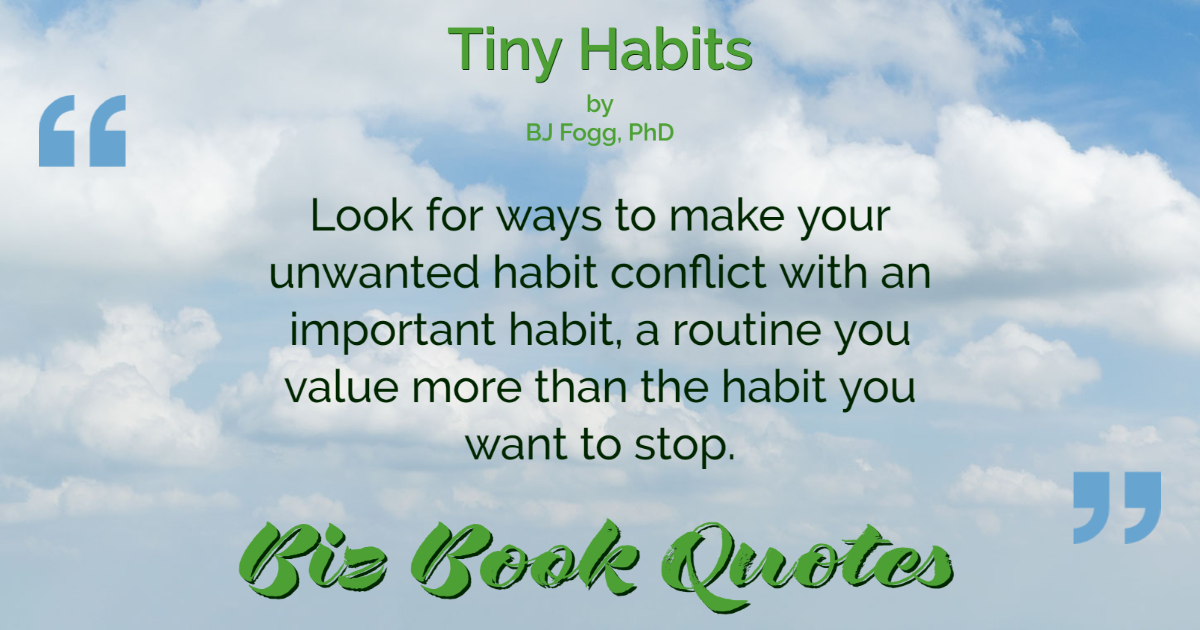
|
Tiny Habits:
Look for ways to make your unwanted habit conflict with an important habit, a routine you value more than the habit you want to stop.
|
215 |
|
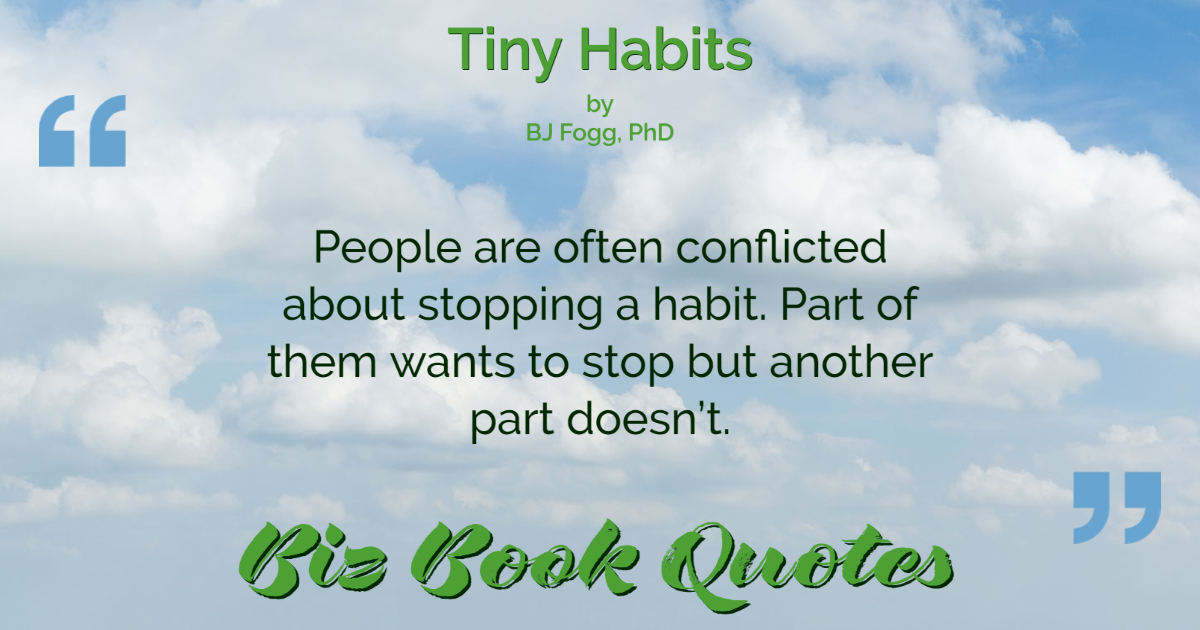
|
Tiny Habits:
People are often conflicted about stopping a habit. Part of them wants to stop but another part doesn’t.
|
218 |
|
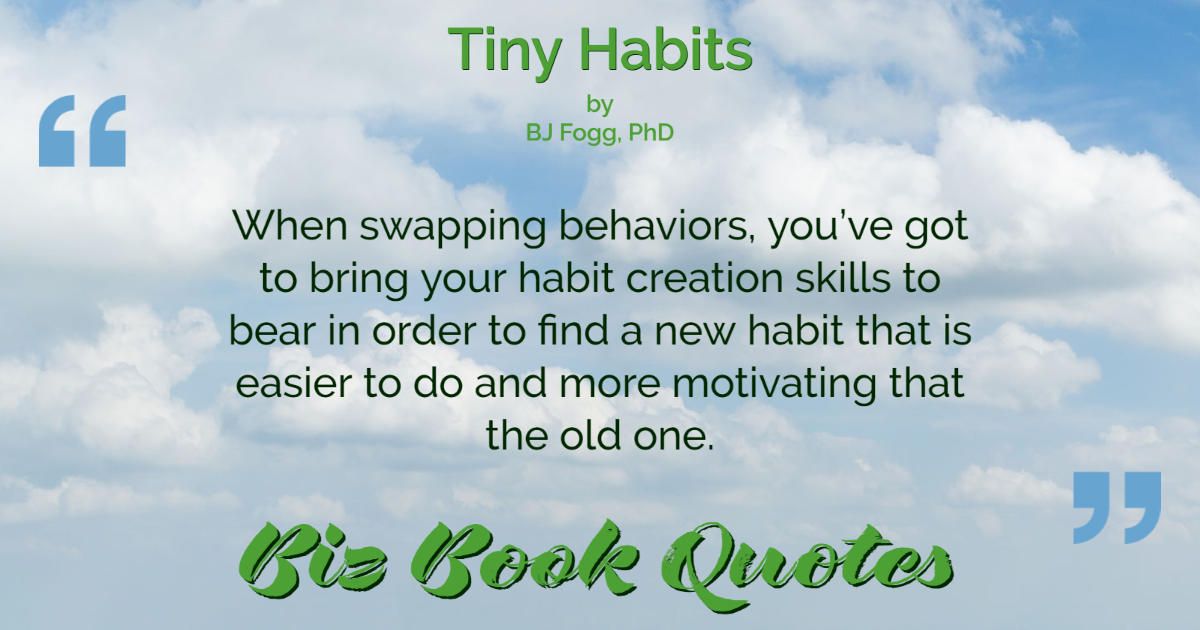
|
Tiny Habits:
When swapping behaviors, you’ve got to bring your habit creation skills to bear in order to find a new habit that is easier to do and more motivating that the old one.
|
219 |
|
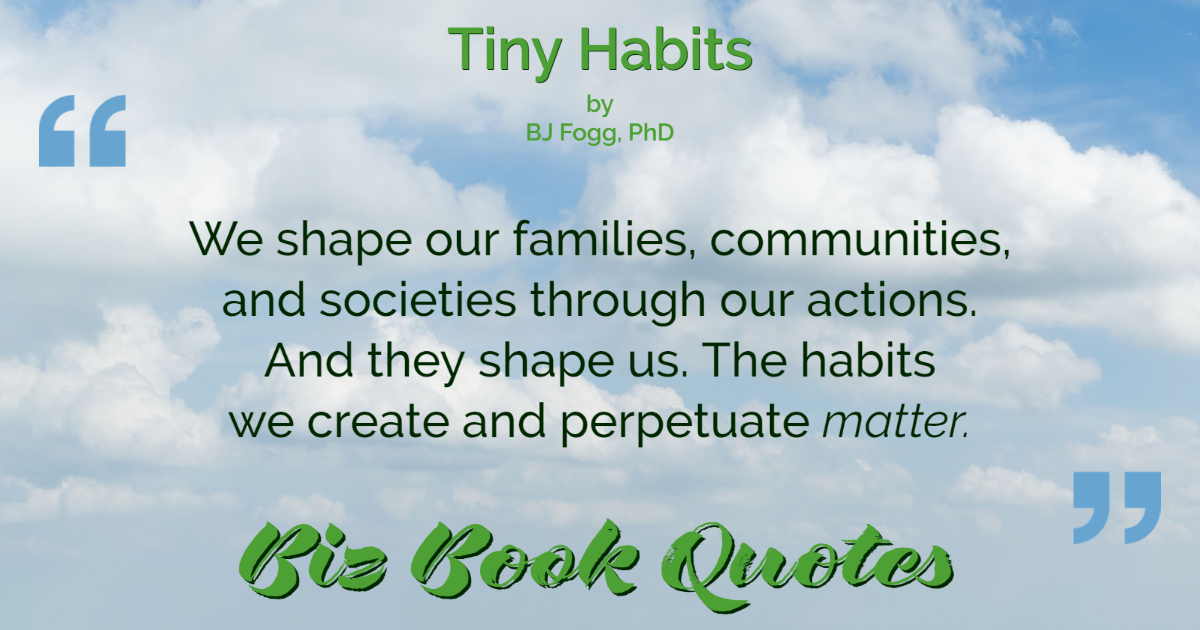
|
Tiny Habits:
We shape our families, communities, and societies through our actions. And they shape us. The habits we create and perpetuate matter.
|
225 |
